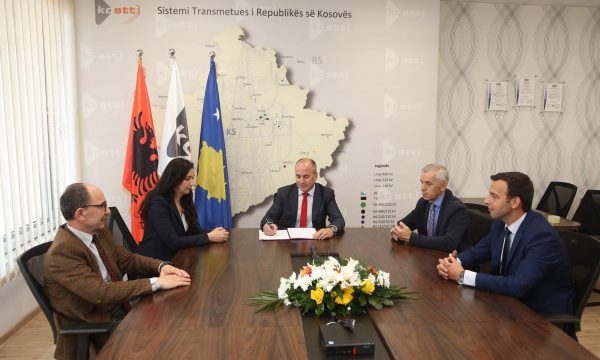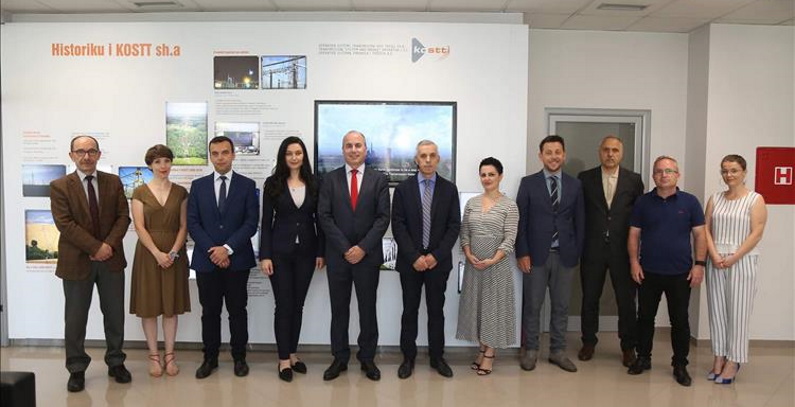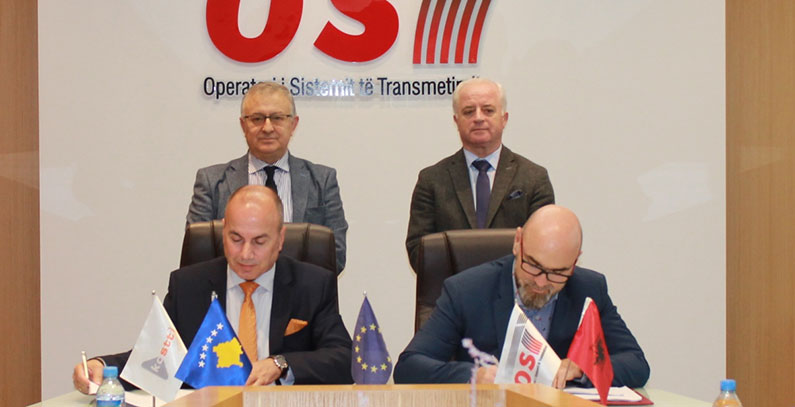Energy
Serbia and Kosovo reached the Agreement on Energy, on 8 September 2013.
The agreement aimed at normalizing their energy relations by:
- Establishing and regulating the relations between their Transmission System Operators (TSOs); EMS is Serbia’s Transmission System Operator and KOSTT is Kosovo’s Transmission System Operator;
- Enabling KOSTT’s membership at ENTSO-E, with the support of EMS;
- Establishing a new company, in accordance with Kosovo laws and regulations, to supply the electricity in the four northern municipalities (North Mitrovicë/a, Zvečan/Zveqan, Zubin Potok and Leposavić/Leposaviq). This company (Elektrosever) aimed at transforming the unauthorized energy operators in the north into a registered one.

The necessity to normalize the energy relations between Kosovo and Serbia came as a result of Serbia’s control over Kosovo’s energy infrastructure, even after independence. KOSTT was part of SMM (Serbia, Montenegro and North Macedonia) Control Bloc; which was coordinated by Serbia’s TSO.
KOSTT was not recognized by the European Network of Transmission System Operators for Electricity or ENTSO-E (with 42 members from 35 countries), so it could not operate independently. And Kosovo was unable to charge other countries’ companies using its energy transmission routes and for congestions created, pursuant to International and European laws on energy and the cooperation of states in the field of energy transmission.
Over the years, this situation has resulted in financial losses for Kosovo. And, since Kosovo – under UNMIK’s representation- had signed the Energy Community Law (in 2006), it could initiate a case to Energy Community Secretariat (August 2008), to assess the compliance of EMS (Serbia) with the Energy Community Law. According to the complaint, Serbia failed to comply with the Treaty, respectively the conditions for access to the network for cross-border exchanges in electricity, by barring KOSTT from participating in the Inter-TSO compensation agreement, and from allocating transmission capacity on the interconnectors with the Contracting Parties adjacent to Kosovo, namely Albania, North Macedonia and Montenegro.
In northern municipalities (North Mitrovicë/a, Zvečan/Zveqan, Zubin Potok and Leposavić/Leposaviq), Kosovo’s energy operators are not able to operate. Rather, the energy infrastructure is operated and controlled by EPS Elektrokosmet, a Serbian state-owned TSO company. Although the company registers household energy consumption, from 1999, it does not collect energy bills and does not charge customers. For Kosovo, this company is an unauthorized energy operator, operating in its territory.
On 10 December 2015, KOSTT and ENTSO-E signed a connection agreement. Through this agreement, KOSTT would become an independent regulatory area/block, separated from EMS, but first, Kosovo was required to issue a license of operation in northern municipalities to Elektrosever; which failed to comply with Kosovo’s licensing procedures. The company has applied several times to Kosovo Business Registration Agency (KBRA) but the application was rejected as the Statute of the Company did not clarify that the company would operate in Kosovo. As a result, for Kosovo, the agreement is not implemented due to Serbia’s refusal to register the new company in Kosovo- Elektrosever, under Kosovo laws and regulations.
On 14 October 2016, the Energy Community Ministerial Council found that Serbia had failed to comply with its obligation under Article 12 of the Treaty in conjunction with Article 6 (6) of Regulation (EC) 1228/2003 as congestion revenues were not used according to the said provision, and required from the same, to take all appropriate measures by December 2016. But, since Serbia did not take any measures by the given deadline, the Secretariat initiated a new case on 13 October 2017 claiming that Serbia failed to take any measures to rectify the identified breaches, thus breaching the Energy Community law.
In December 2019, KOSTT and Albania’s OST signed the agreement on establishing a regulatory block of energy system Kosovo – Albania.
In April 2020, the Regional Group of Continental Europe (one of the five synchronous areas of ENTSO-E’s member TSOs) successfully voted (22 votes in favor, 4 abstentions and 3 against -Spain, Bosnia and Herzegovina and Slovakia) the new connection agreement between KOSTT and ENTSO-E.
Two months later, on 30 June 2020, KOSTT signed an agreement with ENTSO-E, which entered into force at the end of September 2020.
This marks Kosovo’s electro-energetic independence from Serbia and Kosovo’s sovereignty over its power grid.
Now, Kosovo:
- Will no longer be part of the SMM control block; and
- Will operate as an independent regulatory zone within the Kosovo-Albania Regulatory Block (AK block), under the synchronous area of Continental Europe; which will ensure an uninterrupted electricity supply.
Such a joint energy block in general, opens a new era of cooperation in the energy sector between Albania and Kosovo, and the rest of European countries. It will make it easier to operate and balance both systems (KOSTT and OST), reduce costs and exchange system reserves.
As for Kosovo’s membership in ENTSO-e, the country has to meet other criteria.




